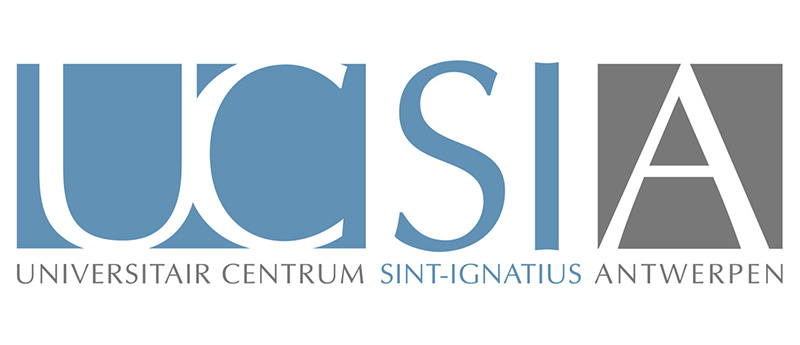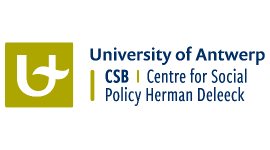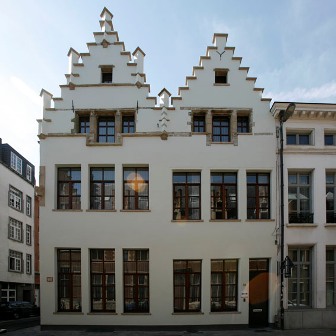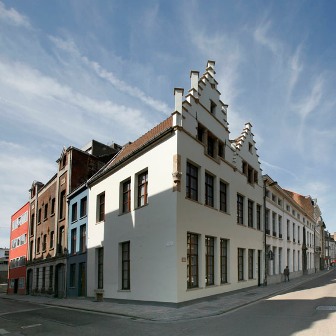
Food Aid & Social Policy in Europe
The Tension Between ‘Cold’ and ‘Warm’ Solidarity in Europe
Coming soon: a short report on the conference.
‘Cold solidarity’ refers to structural redistribution mechanisms of public authorities. They include social security, collective goods and services and taxation. In the developed welfare states of Europe expenditure on social protection represents more than 30% of GDP. Differences across member states are however enormous, ranging from a low 14.5% in Latvia to a high 32.9% in Denmark. These structural redistribution mechanisms allow to limit inequality and reduce poverty. They are mainly organized at the national level. Europe’s role is limited to coordination and regulation, more specifically in regard to free movement of employees in relation to social security systems and the so-called ‘open method of coordination’ in relation to the common goals for inclusive growth. There is no direct involvement of the European governance level in structural redistribution mechanisms for social security and taxation. The EU however seeks to promote actions among the member states to combat poverty and social exclusion, and to reform social protection systems on the basis of policy exchanges and mutual learning. This policy is known as the social protection and social inclusion process — it underpins the Europe 2020 strategy. Recently, the European Pillar of Social Rights sets out a number of key principles and rights to support fair and well-functioning labour markets and welfare systems.
‘Warm solidarity’ refers to the many local, small scale social initiatives that deliver direct aid to people in need (e.g. homework support for vulnerable children, shelters for the homeless, social restaurants, food banks and the social economy). It is difficult to measure the extent and impact of ‘warm solidarity’. We do know however that the sector is expanding. Taking the example of the food banks in Belgium, which date from 1984, they serve 160,000 people today and engage more than 600 charities and a manifold number of volunteers. Through the Social Funds the EU has since long taken a prominent role in supporting ‘warm solidarity’ within member states. More recently, by launching the “Fund for European Aid to the Most Deprived” (FEAD) and promoting the so called “social innovation agenda”, the European Commission confirms itself in an apparently paradoxical position in the social policy field. ‘Social Innovation’ made its first appearance when the Commission launched its Renewed Social Agenda in July 2008 in an attempt to deal with the failure of the social objectives of the Lisbon Agenda. It was strongly supported by the former president of the EU-Commission, Manuel Barroso (2004-2014), becoming part of Europe 2020. The EU does not interfere in national structural redistributive mechanisms but supports place-based local initiatives.
“How may warm and cold solidarity reinforce one another in enhancing the social dimension of the European project?”
There is a historical link between warm and cold solidarity: social security evolved from spontaneous mechanisms organized by social partners locally or sectorially and from independent solidarity and charity providers, such as the Church. The public authorities have consolidated these systems, financially and legislatively, in the process of the development of the welfare state. Although there are inherent tensions between ‘cold’ and ‘warm’ solidarity they are also interrelated. ‘Warm’ solidarity has a signaling function since local social initiatives generally operate where structural redistribution fails. Social action also buttresses the redistributive function of the welfare state, e.g. in the field of activation and social investment policy. Many local initiatives are supported by the welfare state (through direct and indirect subsidies). Spontaneous forms of solidarity may produce trust and cohesion in an increasingly diverse society and this is indispensable to foster political support for ‘cold solidarity’. They address multifaceted problems which are harder to deal with from a wider perspective. They offer space for policy experimenting. The reverse side of the coin is that ‘warm solidarity’, which is covered with only very small budgets – ESF represents 8.7% of the European budget while FEAD stands for just 0.4% of the EU budget and a mere 0.01% of social spending of the EU-28 member states – may be used as an excuse by authorities to withdraw from structural redistribution. The American case is exemplary in that the weak welfare state institutions are correlated with a strongly developed charity aid sector.
As said, the direct impact of Europe is limited to ‘warm solidarity’ bypassing the nation state level. If some member states persist in opposing greater European influence in supporting national welfare states and ignore the logic of path-dependency, this approach might gain weight in the future. In recent times attempts to reinforce the social dimension of Europe often (but not always) followed this pathway. Think about the creation of the “Fund for European Aid to the Most Deprived” and the support of the European Funds for the implementation of the European Pillar of Social Rights in the member states. For the period 2014-2020, the European Social Fund disposes of almost EUR 90 billion to support access to employment, social inclusion and education. Beyond 2020, European funding will continue to provide key investments in social and human capital across the EU.
So, should Europe proceed in this direction? Or are the European welfare states in need of more direct support, by means of European transfers (such as a European unemployment insurance) or binding common norms (as to minimum wages)? How may warm and cold solidarity reinforce one another in enhancing the social dimension of the European project?
“Does the recently introduced European Pillar of Social Rights offer new opportunities for a more structural European approach in social policy?”
The University Centre Saint Ignatius Antwerp organizes this conference in the framework of a meeting of the SCRIBANI network in Antwerp. The SCRIBANI network, created in 2003 and coordinated by UCSIA, is a collaboration between 15 European Jesuit centres working for the social construction of Europe, either through grassroots action or through research on relevant social issues. The programme was developed with the Herman Deleeck Centre for Social Policy at the University of Antwerp.
Downloads
Bea Cantillon’s presentation
Joanna Greiss’ presentation
Alexandre Lesiw’s presentation
Stijn Oosterlynck’s presentation
Patrick Riordan’s text
Bérénice Storms’ presentation
Frank Vandenbroucke’s presentation
Herwig Verschueren’s presentation
Photos
Speakers
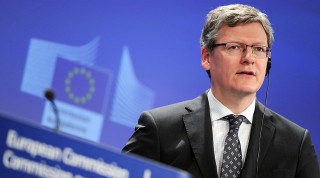
Laszlo Andor
Former EU Commissioner for Employment, Social Affairs and Inclusion
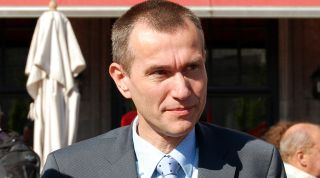
Frank Vandenbroucke
Professor Economic and Social Policy at the University of Amsterdam and Holder of the Chair “Herman Deleeck” at the University of Antwerp
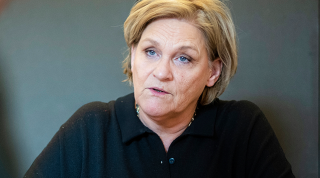
Bea Cantillon
Director of the Centre for Social Policy Herman Deleeck, University of Antwerp
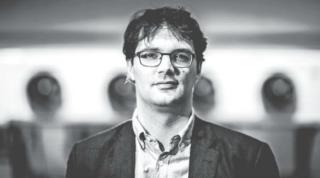
Stijn Oosterlynck
Director of the Centre for Research on Environmental and Social Change (CRESC), University of Antwerp

Herwig Verschueren
Professor of European Social Law at the University of Antwerp, Research Group ‘Government and Law’, University of Antwerp

Bérénice Storms
Centre for Social Policy Herman Deleeck, University of Antwerp

Johanna Greiss
Centre for Social Policy Herman Deleeck, University of Antwerp

Alexandre Lesiw
President a.i. Federal Public Planning Service Social Integration PODMI
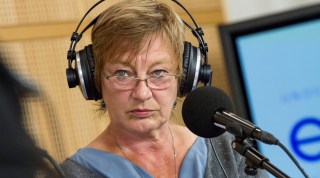
Anne Van Lancker
Policy Coordinator European Minimum Income Network EMIN

Thijs Smeyers
Policy and Advocacy Coordinator Caritas Belgium & Chair of the Social Inclusion and Integration Action Group of Caritas Europa

Edmond Grace SJ
Secretary for Justice and Ecology, Jesuit European Social Centre

Judith Tobac
Policy Advisor of The Belgium Anti-Poverty Network BAPN
In cooperation with:
Herman Deleeck Centre for Social Policy
studies social inequality and wealth distribution in the welfare state
SCRIBANI network
network of European Jesuit research centres on the theme Europe and European integration in a social context
